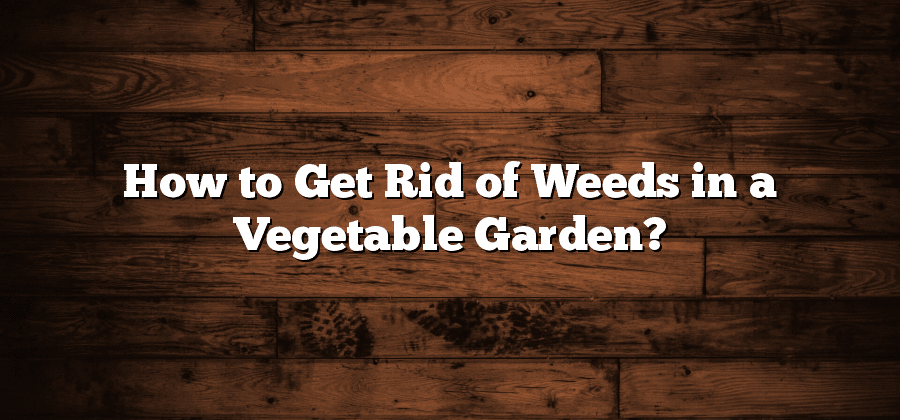Identifying Common Weeds in Your Vegetable Garden
One of the challenges that vegetable gardeners often face is the presence of weeds. These unwelcome plants can compete with your vegetables for sunlight, water, and nutrients, hindering their growth and productivity. So, it becomes essential to be able to identify common weeds in your vegetable garden to effectively control and manage them.
One common weed that you may encounter is the dandelion. With its bright yellow flowers and fluffy seed heads, it may seem harmless and even charming. However, dandelions are notorious for their ability to quickly spread and take over a garden. Their deep taproots make them difficult to fully remove, and if left unchecked, they can rob your vegetables of the resources they need to thrive. Plus, when dandelions go to seed, their fluffy seeds can be carried by the wind, creating more weed problems in your garden.
Understanding the Impact of Weeds on Vegetable Growth
Weeds are more than just unsightly plants that take up space in your vegetable garden. They can have a significant impact on the growth and health of your vegetable crops. Weeds compete with vegetables for nutrients, water, and sunlight, often outcompeting the desired plants. This competition can lead to stunted growth, reduced yields, and even the death of vegetable plants.
In addition to competing for resources, weeds can also provide shelter and breeding grounds for pests and diseases. This can further exacerbate the impact on vegetable growth, as pests and diseases can quickly spread from the weeds to the vegetables. Therefore, it is not only important to remove weeds from your garden but also to do so in a timely manner to prevent any potential damage to your vegetable crops.
Implementing Effective Weed Prevention Strategies
One of the most important aspects of maintaining a healthy vegetable garden is effectively preventing the growth of weeds. Weeds not only compete for nutrients, sunlight, and water with your vegetable plants, but they can also harbor pests and diseases that can cause significant damage. To ensure the success of your vegetable garden, it is crucial to implement effective weed prevention strategies.
One strategy is to regularly inspect your garden for any signs of weed growth and promptly remove them. This can be done by hand pulling or using a small tool such as a hand trowel. Be sure to remove the entire weed, including the root system, to prevent regrowth. Additionally, it is recommended to remove weeds before they start producing seeds to avoid future weed problems. Remember to dispose of the weeds properly to prevent any accidental spread.
Choosing the Right Mulch for Weed Control
Mulching is a crucial step in maintaining the health and productivity of your vegetable garden. By choosing the right mulch, you can effectively control weeds and create an optimal growing environment for your vegetables. When it comes to weed control, not all mulch is created equal. Different types of mulch offer varying levels of effectiveness in suppressing weeds and preventing their growth.
One popular option for weed control is organic mulch, such as straw or wood chips. Organic mulch not only helps to smother weeds by blocking sunlight, but it also adds nutrients to the soil as it decomposes. This natural mulch option is environmentally friendly and provides a long-lasting solution for weed prevention. Another choice for effective weed control is using synthetic mulch or landscape fabric. These materials create a physical barrier between the soil and sunlight, preventing weed growth. However, synthetic mulch does not add any nutrients to the soil and may need to be replaced more frequently.
• Organic mulch, such as straw or wood chips, is a popular option for weed control
• Organic mulch blocks sunlight and adds nutrients to the soil as it decomposes
• This type of mulch provides a long-lasting solution for weed prevention
• Synthetic mulch or landscape fabric can also be used for effective weed control
• These materials create a physical barrier between the soil and sunlight, preventing weed growth
• However, synthetic mulch does not add any nutrients to the soil
• It may need to be replaced more frequently than organic mulch
Utilizing Organic Weed Control Methods
One of the most effective ways to control weeds in your vegetable garden is through the use of organic methods. These methods focus on utilizing natural substances and techniques to suppress weed growth without relying on harmful chemicals. By implementing organic weed control methods, not only are you ensuring the health and safety of your vegetables, but also contributing to a sustainable and environmentally-friendly gardening practice.
One common organic weed control method is hand-weeding. This labor-intensive practice involves manually removing weeds from your garden beds by pulling them out from the root. While it may take some time and effort, hand-weeding can be an effective way to control weeds, especially in smaller garden areas. Remember to wear gloves while hand-weeding to protect your hands and minimize contact with any potentially harmful plants. Additionally, it is important to regularly inspect your garden beds and remove any weeds promptly to prevent them from spreading and competing with your vegetable plants.






